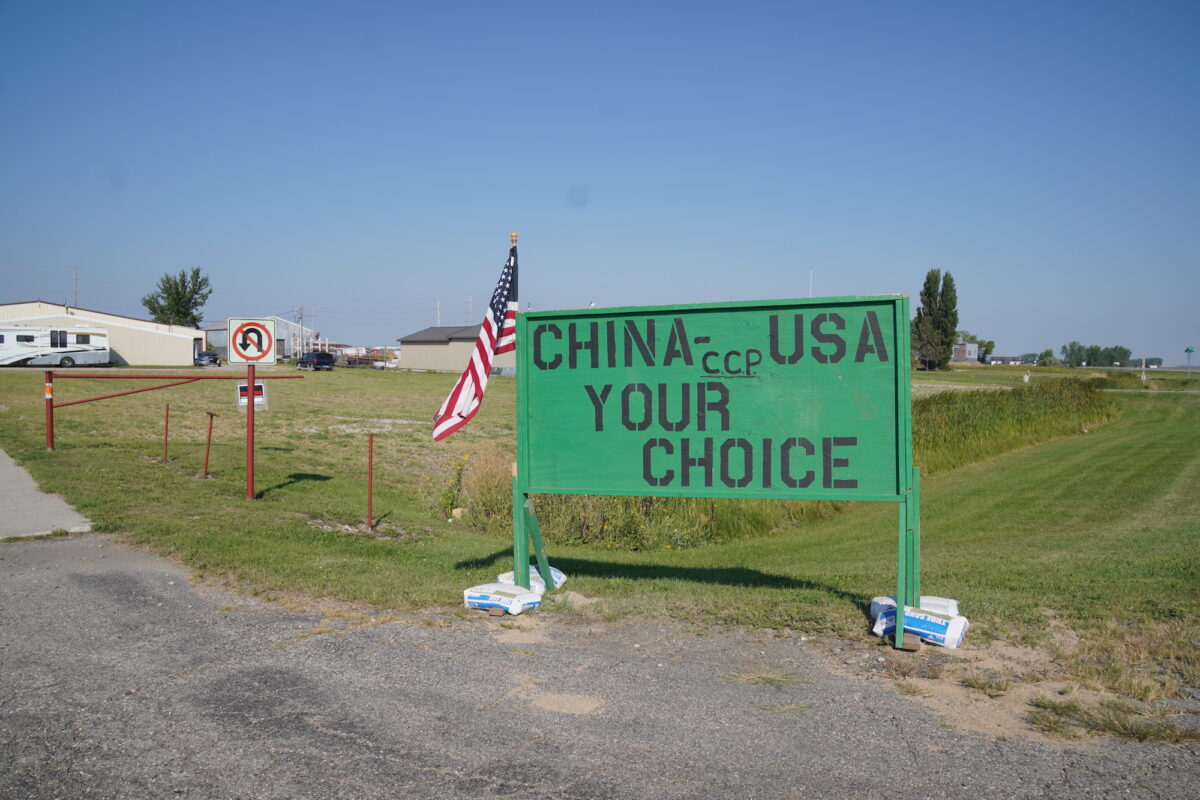By Andrew Thornebrooke
Florida Gov. Ron DeSantis is mulling a move to ban Chinese entities from purchasing property in the state due to the economic and security risks posed by China’s communist regime.
“If you look at the Chinese Communist Party, they’ve been very active throughout the Western Hemisphere in gobbling up land and investing in different things,” DeSantis said during a press conference on Jan. 10.
“And, you know, when they have interests that are opposed to ours, and you’ve seen how they’ve wielded their authority… it is not in the best interests of Florida to have the Chinese Communist Party owning farmland, owning land close to military bases.”
The remarks follow warnings from security experts and lawmakers that the Chinese Communist Party (CCP), which rules China as a single-party state, is seeking to purchase strategic parcels of land throughout the United States from which it can conduct espionage or otherwise sabotage U.S. national security interests.
In recent years, Chinese land buys in Texas and North Dakota, which were both situated near U.S. military bases, have raised alarm among both locals and policymakers in state and federal governments.
DeSantis said that the CCP had “taken a much more Marxist-Leninist turn” under current Party leader Xi Jinping and suggested that communist China was now a “hostile nation.”
“We do not need to have CCP influence in Florida’s economy,” DeSantis said.

China Spending Billions on US Land Every Year
Chinese investors purchased more than $6 billion in U.S. real estate between March 2021 and March 2022, according to the National Association of Realtors, making it the largest foreign buyer in terms of dollars spent.
Florida has been at the center of that purchasing craze, with 24 percent of all foreign property purchases in the nation happening there. The next state with the highest amount of foreign purchases was California, which accounted for 11 percent.
DeSantis described the CCP’s influence in American society as “very insidious” and, to that end, said that he was not only concerned with the CCP seeking out farmland, but also wanted to terminate its access to residential properties.
“Why would you want them buying residential developments and things like that?” DeSantis said. “I don’t want them owning subdivisions and things like that.”
Though outrage over the issue has been widespread in recent months, there have been relatively few concrete actions taken to curb the flow of U.S. land to CCP-aligned organizations.
Rep. Dan Newhouse (R-Wash.) introduced legislation in November that would “prohibit the purchase of public or private agricultural land in the United States by foreign nationals associated with the Government of the People’s Republic of China.”
Likewise, Reps. Elise Stefanik (R-N.Y.) and Rick Crawford (R-Ark.) introduced legislation to improve national security by “preventing foreign adversaries from taking any ownership or control of the United States agriculture industry.”
There may be some movement on the issue, however. The House voted earlier in the week to establish a new select committee to investigate issues related to the strategic competition between the United States and the Chinese Communist Party. That effort as well could help to shed light on the risk posed by CCP front companies scooping up American land.
Still, there is the problem of identifying which companies are and are not acting on behalf of the CCP, an issue that DeSantis said would need to be addressed to make any ban effective and fair.
“The issue is going to be, obviously, if someone comes in and buys, it’s not the CCP that’s signing that,” DeSantis said. “These are holding companies … So you have to structure that in a way that will effectively police it.”

